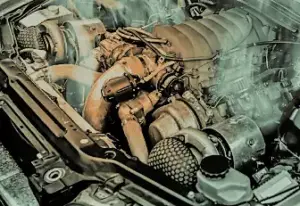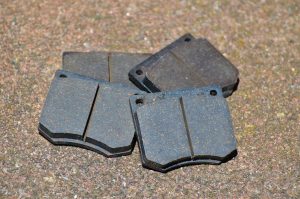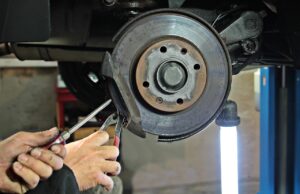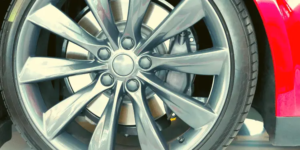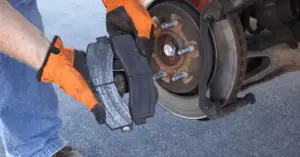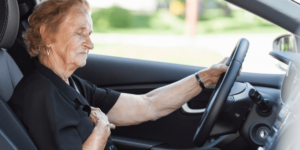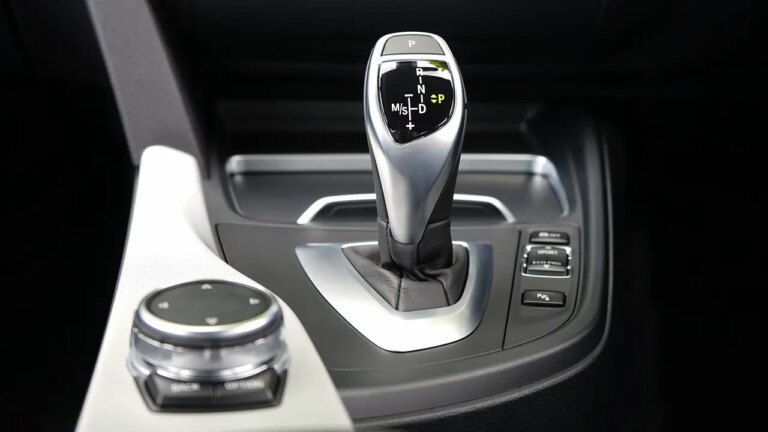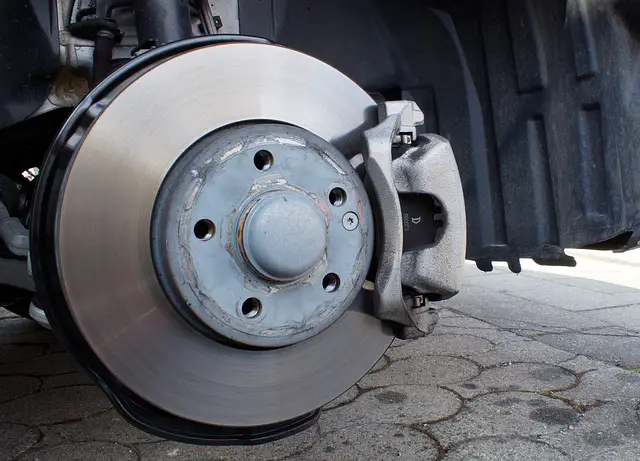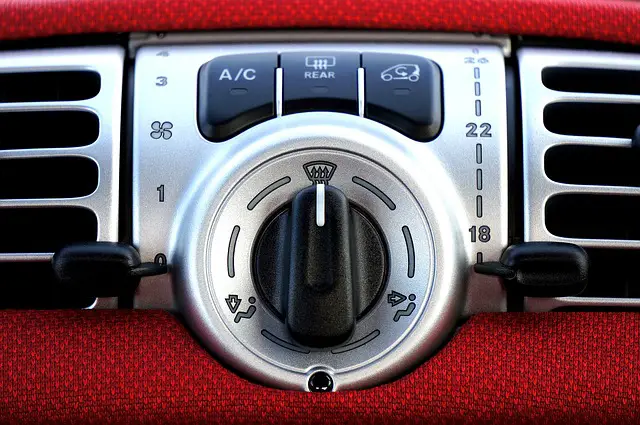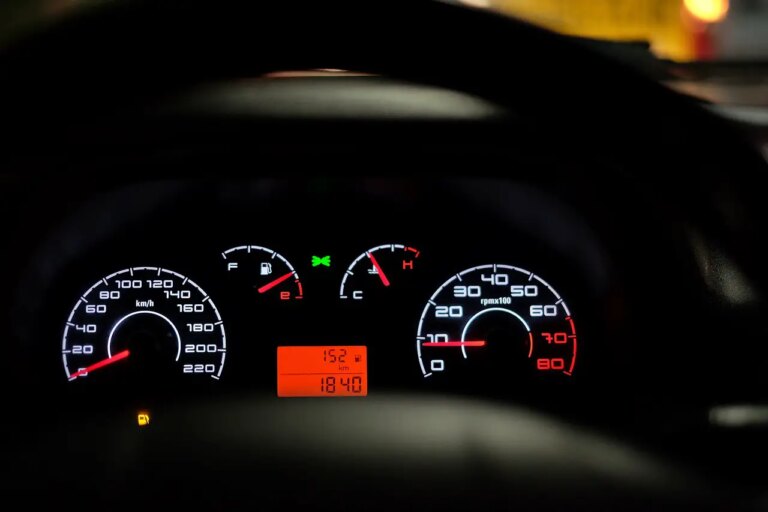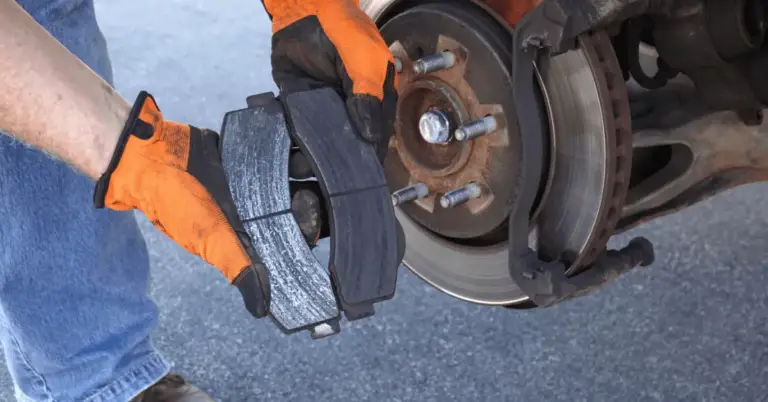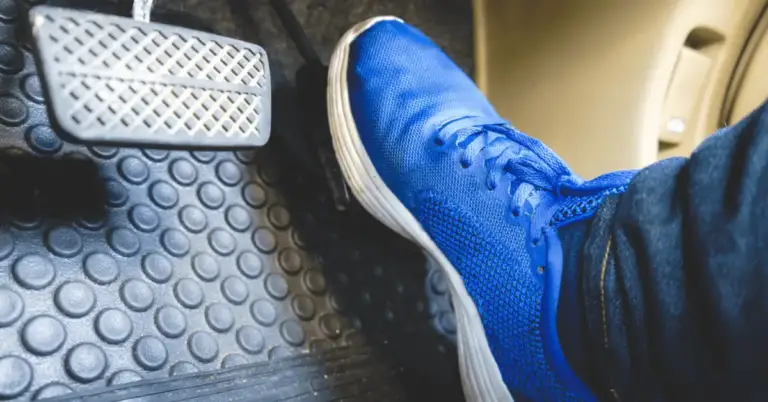Brakes of an important safety system and any signs that they’re not working at their best it’s concerning.
In this article, we’ll explain why your brakes are skipping, what it means and what you can do to correct it.
Before we get into details, your brakes are skipping for one of the following reasons.
- Brake Rotor is Warped
- Debris Between the Pad and the Rotor.
- Rusty Rotors
- Water on the Rotor
- ABS sensor gone bad
Let’s look at these individually.
Brake Rotor is Warped
Brake rotors are a crucial component of your braking system, but like brake pads, they only last a certain length of time before needing to be changed. This, too, is dependent on the driver’s style and the brand of rotor fitted.
Rotors not only wear out, but they can become distorted. This is caused as they are heated and then cool quickly as the pads are pressed against them and released when the brake pedal is released.
The pad may hop off the rotor due to this unevenness, which is most likely the skipping you’re feeling through the steering wheel when you brake.
Rotors typically last between 35,000 and 55,000 miles until needing to be replaced.
You’ll probably need to change the pads too. This can save money on labor because the mechanic will only have to remove the wheel once instead of needing to do it again if the pads need to be replaced later. This might be cost-effective due to the low cost of pads but the high labor costs.
A sure sign you have a warped rotor is to look for uneven wear. If you see this, then you’ll need a new rotor as they can’t be repaired.
Depending on the model of your car and the manufacturer of rotors you choose, you’ll pay anywhere from $50 to $250. Labor charges range from $95 to $160.
You should get your car into a car shop as soon as you can and get the rotor checked over. The skipping won’t go away and will only get worse.
Debris Between The Rotor and The Pad
Each time your push on the pedal, the rotors lose a thin layer of material from their surface.
Some dust produced when you brake doesn’t dissipate into the air and settles on the rotors instead.
This dust can pool in pockets on the rotor, especially where lipping occurs. As pressure is applied when braking, the pad can skip over the affected section of the rotor.
A really simple way to get rid of this dust is to use an air compressor to force air around the areas you can’t see or get to.
When you fill your tires with air at the gas station would be a good time to give them a blast of air.
You could try pressure washing the dust away, but that will likely increase the chances of another problem. We’ll explore that below.
Rusty Rotors
Most brake rotors are made of iron – although ceramic and carbon are becoming more popular, especially in sports and performance cars.
Iron will rust, and the longer the rotors are exposed to the elements, the quicker this will happen.
The rotors will dispel water as they get heated by the friction of the pads against them.
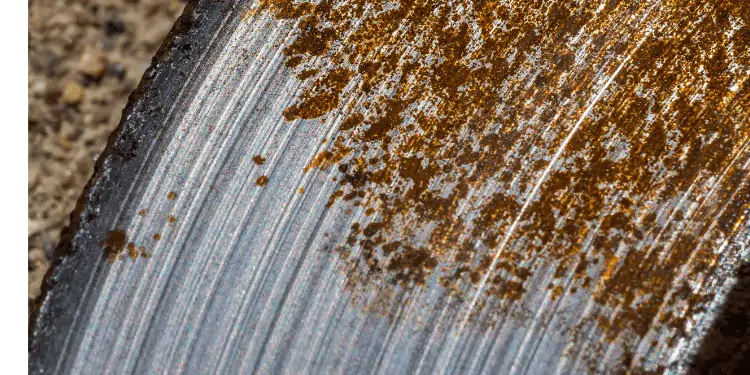
In wetter states, a film of rust can build up on the rotors, especially if the car is only used for short journeys before being parked again.
Rusty rotors will be worse on cars that aren’t parked in garages overnight – for obvious reasons.
Some sections of the rotor can become more rusted than others. Gravity will pool water lower down on the rotor when parked.
By chance and not design, a certain section of your rotor may be at the bottom when parked over a wet period and rust more.
If the rusted rotor section is parallel to the brake pad, it can skip onto a more grippy piece of iron when you press the brake pedal.
Cleaning the rust off the rotors is easy, and you can do it yourself with a few tools and brake cleaner. You’ll have to take the wheels off to get to them, but once they’re off, brake cleaner and steel wool are all you’ll need.
Water on the Rotor
This is near the end for a good reason. If water on your rotor is causing the skipping, it’ll only be temporary. Once the brake pedal has been pressed a few times, the water will dissipate or be turned to steam from the friction.
If you only get the skipping when you return to your car after having it parked for a few hours, this is the likely cause.
It doesn’t have to have been raining to get moisture on the rotors, either. Cooler mornings in the fall can cause dew and condensation over your entire car, including the brakes.
If the skipping remains after braking a couple of times, then the first three causes in this article are more likely.
Often rain on the rotors will be accompanied by a squealing noise as the water on the rotors is trying to be compressed by the pad. Water also acts as a lubricant – not something you want on your brakes. The skipping feeling is the pads trying to get a grip on the rotors.
Related article: Why Brakes Are Crunching? Dangers and Fixes Explored
ABS Sensor Gone Bad
Most modern cars have ABS – Antilock braking system. Its safety feature ensures your car doesn’t skid when applying brakes. They work by applying and releasing the pads from the rotor many times each second when the sensor tells the ECU a skid is likely to happen. There’s one on each wheel.

ABS sensors are subjected to extremes of heat and moisture because of their exposed position inside the wheel close to the rotor.
A simple way of checking if the ABS sensor is bad is to pull the fuse and see if the car still skips. However, you might nullify your insurance if you drive without ABS and get involved in an accident.
Related Article: Does Cruise Control Use Brakes? [ANSWERED]
New Brakes Skipping
Breaking in brake pads, also known as bedding in, is genuine. It may seem strange that the brakes must go through this while everything else on the car functions like new the moment we replace it.
Brakes are the only vehicle part that has metal-to-metal friction at high speeds.
They don’t always skip when they’re new, but if yours are, this is the most likely reason. It shouldn’t be a cause for concern unless it continues after 100 kilometers of motoring or if your brakes become sluggish.
If you’d rather get rid of the skipping quicker and get your brakes bedded in, here’s a video of someone breaking in car’s brakes.
In Conclusion
This indicates that the brake rotors are worn out unevenly. This is caused by rotor run out. If your brake rotors are out of shape, the brake pads will rub against their flat spots. This is called brake shudder or skipping.
All of the fixes mentioned are cheap, which is good news as you’ve seen all but the ABS potential issue can be checked visually. If the rotor is warped, it should be less worn in some areas compared to others.
If the rotors are rusty, that’s easy to see. If you suspect rain on the rotor is causing the skip, compare days with no rain or dew to days with and see if there’s a difference.
An ABS fuse being pulled will quickly let you know if the ABS has gone bad.
Other brake-related problems could cause a skip but would normally be accompanied by a grounding or screeching noise. Parts like a stuck caliper would cause this.


